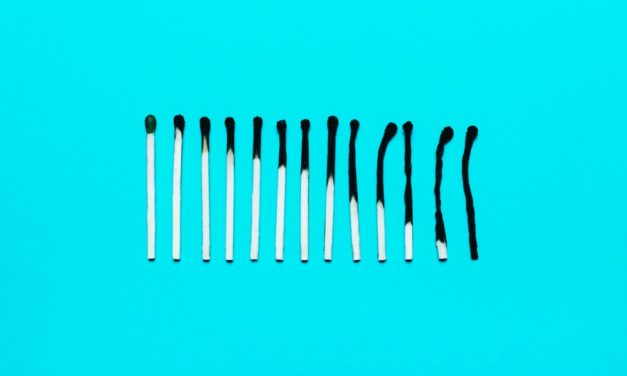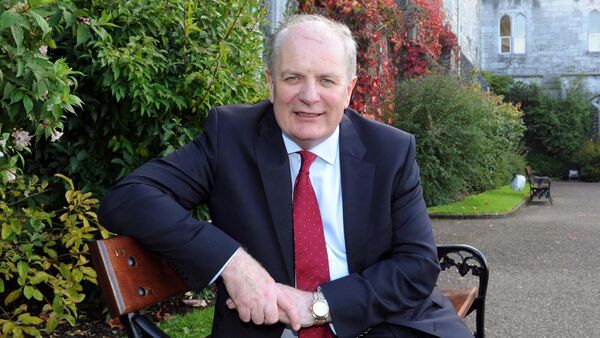If you are struggling with work at the moment, you may be on the verge of burning out. Working from home can be stressful as well. It’s not as serious as it sounds once it’s detected early.
Burnout can leave people feeling exhausted or, more seriously, it can leave a person unable to deal with daily life demands, hence the importance of knowing what the early signs of burnout are and what can be done to relieve it.
A lot of people wear their burnout as a badge of honour. Remember, however, with the absence of sleep, a good diet, relaxation, and time with family or friends (even if it is temporarily virtual) you’re not going to make for a productive team member.
What are the signs of burnout?
“The way I explain burnout is mental, physical, and emotional exhaustion brought on by emotionally demanding situations,” says Siobhán Murray, motivational speaker, global thought leader on burnout, and bestselling author of ‘The Burnout Solution’.
Emotional signs
She explains how a prolonged feeling of the following can be signs of burnout:
- Disengagement in work
- Not feeling valued
- Not contributing to work
- Feeling short-tempered with colleagues or with yourself
- Feeling teary or angry at your workload
- Losing sleep
- Struggling to switch off
- Constantly feeling anxious or worried
- Catastrophising everything that’s going on
Physical signs
There are also physical signs of burnout too. When your body is stressed, it’s like one big muscle that’s clenched. Here are some of the physical manifestations of burnout:
- Aches and pains
- Digestive issues
- Headaches
- Pains in your chest
What can we do to stop burnout?
Siobhán says that up until last March we paid lip service to our own wellness, such as going to the gym and connecting with others, however, one of the things we were really guilty of is ‘runaway recovery’ or ‘runaway prevention’ – “where we work really hard but just keep going on the treadmill because I’m going on my holidays, I’m going to run away,” she said.
But let’s not forget that going on holiday can be stressful, as Siobhán reminds us. Between getting work cover, doing extra work before you leave, packing, the list goes on. Then we go on holidays and most might get sick with usually a cold while they’re away and then come home and become equally stressed unpacking and catching up with work – the vicious cycle continues.
“This process wasn’t a great one but we did it anyway and we convinced ourselves that that’s how we recharged. What the last twelve months have taught us is we need to have rituals of recovery. If we don’t have these rituals of prevention whether they’re small daily ones or bigger weekly ones, when offices open and we begin to back to normal we risk falling back into the trap of not minding ourselves. We’re going to equally be as burnt out as we’ve ever been before,” Siobhan said.
There are ways we can incorporate rituals of prevention into our daily lives. Siobhán emphasises the importance of improving our already existing rituals of prevention rather than having to add extra tasks to the already long ‘to do’ lists.
Sleep more and regularly
“Addressing sleep first is the most important thing,” said Siobhán. “Without positive healthy sleep we’re going to eat worse, possibly become more alcohol-dependent and our cognitive reasoning is out the window.”
Learn productivity hacks
Make sure you work smarter, not harder. Try to research some productivity hacks so you can get more work done in less time!
Don’t use your phone right away when you wake up
Siobhán told Recruit Ireland that she uses a Lumi light instead of her phone as an alarm clock, “When we use the phone as an alarm clock it’s like someone hitting us over the head with an iron bar. It jolts us into being awake which activates our stress hormone that can stay with you for the rest of the day,” she said.
Practice mindfulness
If you enjoy baking, cooking, or reading, Siobhán confirms that these are all acts of mindfulness because during these activities you are present in the here and now, and that’s the core ethos of mindfulness. Making small adjustments or improvements to our daily lives can help with how we manage stress, “find those habit changes rather than giving yourself more to do,” she said.
Exercise intelligently
“Trying to do a HITT class in seven minutes isn’t smart if you’re exhausted,” Siobhán said. “Smart exercise is about listening to your body,” she continued. If you’re exhausted instead of doing an intense workout, Siobhán advises to go for a walk instead where you’re not timing yourself or setting a distance, you’re simply going outside for fresh air.
Assess your situation
Perhaps you also need to meditate and think hard about your current employment and your happiness there. In case you need to find other opportunities, you can always search on Recruit Ireland’s Job Page.









